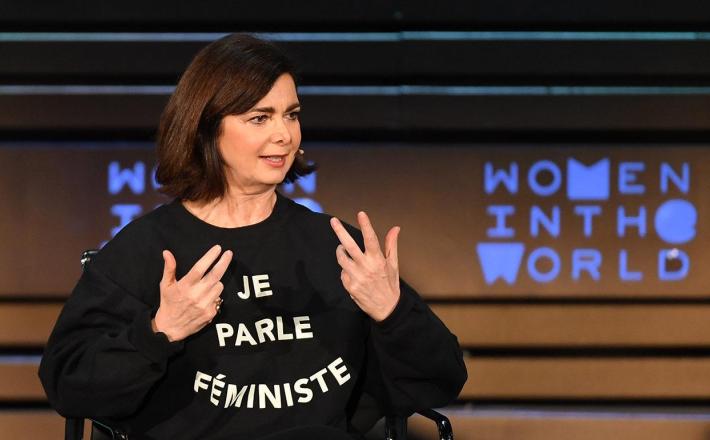Tackling online abuse and disinformation targeting women in politics
Source: Carnegie Endowment
In 2017, soon after then Ukrainian member of parliament Svitlana Zalishchuk gave a speech to the United Nations on the impact of the Russian-Ukrainian conflict on women, a fake tweet began to circulate on social media claiming that she had promised to run naked through the streets of Kiev if Russia-backed separatists won a critical battle. Zalishchuk said, “The story kept circulating on the Internet for a year,” casting a shadow over her political accomplishments.
Zalishchuk is not alone in her experience. Around the world, women in politics receive an overwhelming amount of online abuse, harassment, and gendered defamation via social media platforms. For example, a recent analysis of the 2020 U.S. congressional races found that female candidates were significantly more likely to receive online abuse than their male counterparts. On Facebook, female Democrats running for office received ten times more abusive comments than male Democratic candidates. Similar trends have been documented in India, the UK, Ukraine, and Zimbabwe
Click here to read the full article published by CNN on 6 November 2020.

In 2017, soon after then Ukrainian member of parliament Svitlana Zalishchuk gave a speech to the United Nations on the impact of the Russian-Ukrainian conflict on women, a fake tweet began to circulate on social media claiming that she had promised to run naked through the streets of Kiev if Russia-backed separatists won a critical battle. Zalishchuk said, “The story kept circulating on the Internet for a year,” casting a shadow over her political accomplishments.
Zalishchuk is not alone in her experience. Around the world, women in politics receive an overwhelming amount of online abuse, harassment, and gendered defamation via social media platforms. For example, a recent analysis of the 2020 U.S. congressional races found that female candidates were significantly more likely to receive online abuse than their male counterparts. On Facebook, female Democrats running for office received ten times more abusive comments than male Democratic candidates. Similar trends have been documented in India, the UK, Ukraine, and Zimbabwe
Click here to read the full article published by CNN on 6 November 2020.